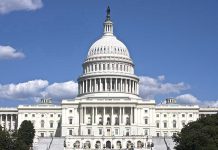
Nearly a million Americans now face dire privacy threats after DaVita’s massive data breach exposed sensitive medical and financial records—raising urgent questions about the security of critical healthcare infrastructure.
Story Snapshot
- DaVita’s ransomware breach compromised data for over 916,000 patients, making it 2025’s second-largest healthcare attack.
- The Interlock gang leaked up to 1.5TB of patient and financial information after failed ransom negotiations.
- Victims now face risks of identity theft, fraud, and lifelong privacy violations.
- Incident exposes healthcare’s vulnerability and underscores threats to constitutional privacy rights and personal security.
Ransomware Attack Targets Healthcare’s Most Vulnerable
DaVita Inc., a Fortune 500 leader in kidney dialysis, suffered a devastating ransomware attack between March and April 2025. The cybercriminal group Interlock infiltrated DaVita’s systems, exfiltrating and leaking sensitive information from over 916,000 patients—the second-largest healthcare breach this year. The data exposed included Social Security numbers, medical records, and financial details. Despite the breach, DaVita’s clinics continued operating, but the scale of exposure highlights how medical providers remain prime targets for sophisticated cybercrime, threatening both patient safety and personal liberty.
The attackers released up to 1.5 terabytes of data after ransom talks failed, posting samples online and offering stolen information for sale. DaVita responded by notifying affected individuals and regulatory bodies, and began offering free identity protection through Experian. The company’s swift operational recovery masks the deeper issue: healthcare’s ongoing technological vulnerabilities. These attacks not only endanger patient privacy but also divert resources and potentially disrupt life-saving services, putting American families’ security at risk.
Healthcare Sector Under Siege: Systemic Risks and Conservative Concerns
This incident is part of a disturbing pattern, with 53 healthcare ransomware attacks confirmed in 2025, affecting over 3.2 million records nationwide. Interlock, active since late 2024, has targeted at least 23 organizations, including major providers. Previous breaches, such as Frederick Health’s January 2025 attack, have set a precedent for widespread sector vulnerability. Healthcare providers are attractive targets because their data is valuable and their services are essential, making cyberattacks a direct threat to Americans’ constitutional right to privacy, family security, and freedom from government overreach.
DaVita now faces the prospect of regulatory penalties, lawsuits, and lasting reputational damage, while affected patients must contend with increased risks of identity theft and fraud. The incident also prompts industry-wide scrutiny, with experts calling for robust cybersecurity measures, regular audits, and heightened incident response capabilities. Without major reforms, these repeated breaches will continue to expose American families and erode trust in vital institutions.
Stakeholders and Power Dynamics: Who Holds the Leverage?
The breach has shifted power away from healthcare providers and patients, with criminal actors like Interlock using stolen data as leverage for extortion. DaVita is accountable to patients, regulators, and shareholders, while law enforcement and cybersecurity firms scramble to mitigate damage and investigate the attack. Regulatory authorities, including the SEC and state agencies, are now overseeing DaVita’s response, with potential for new policy changes or penalties. The urgent need to defend constitutional rights—especially privacy and security—has never been clearer.
Industry experts warn that the exposure of medical and financial data can have lifelong consequences, including medical identity theft and insurance fraud. Some argue that paying ransoms merely incentivizes further attacks, while others stress the necessity of rapid recovery to protect patient health. The DaVita breach is a wake-up call: when critical infrastructure is unsecured, American freedoms and values are at risk.
Impact and Long-term Implications for American Families
Short-term, DaVita’s breach exposes hundreds of thousands to fraud, phishing, and privacy violations. Long-term, the attack could result in regulatory action, increased costs, and diminished trust in healthcare providers. With the healthcare sector now spotlighted as a prime ransomware target, conservative Americans must demand stronger cybersecurity, transparent reporting, and accountability from both providers and government regulators. Protecting personal liberty, family privacy, and constitutional rights requires vigilance—and meaningful reform—to defend against future attacks.
Limited transparency around the attack’s details and the full extent of data exposure remains a concern. The urgency for improved safeguards and accountability is clear: only by confronting systemic vulnerabilities and resisting further government overreach can Americans restore confidence in their healthcare system and secure their rights against threats both foreign and domestic.
Sources:
Nearly a million patients hit by DaVita dialysis ransomware attack | Fox News
DaVita Ransomware Attack Affects More Than 1 Million | HIPAA Journal


















